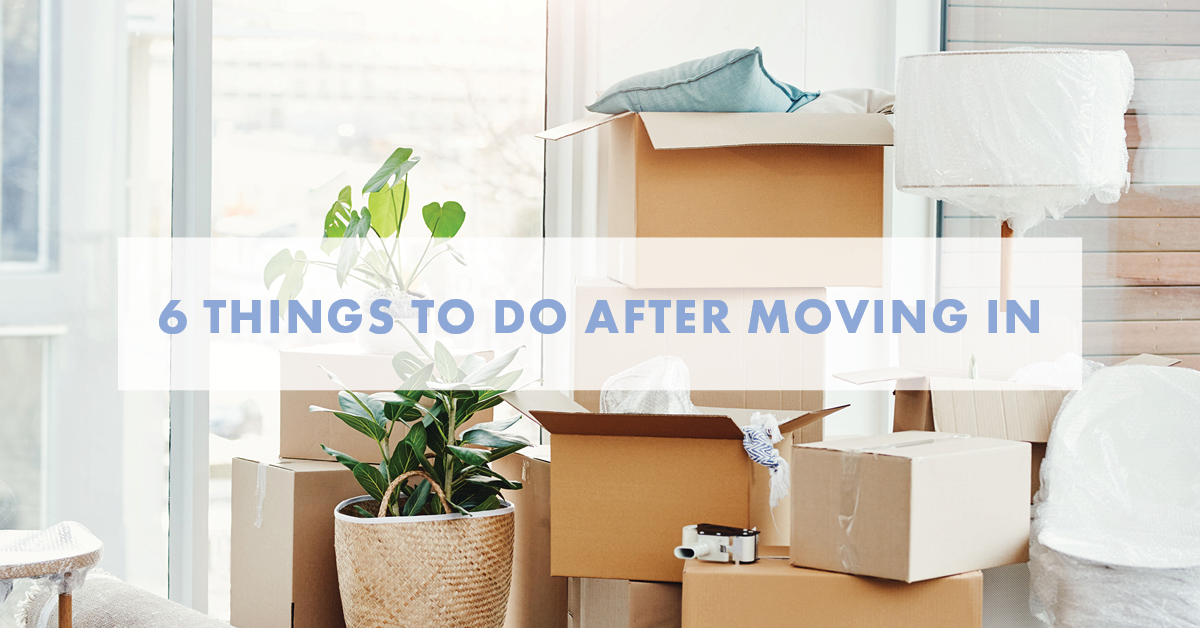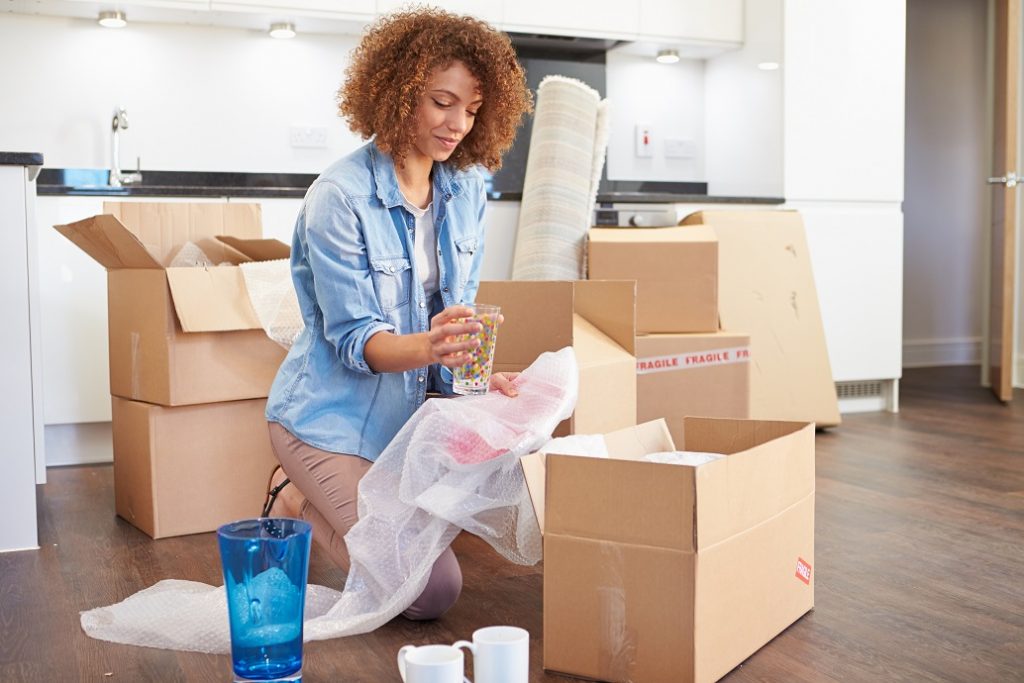
By Alena Kairys
Aug 12, 2022Between the excitement of closing on your new home, packing up your things, and coordinating moving services, it may not have occurred to you to make a checklist for after you’ve moved in. Moving time can be a stressful time for you and your family, which is why it’s important to consider post-move-in duties, too. Here are six things to do after moving in.
Clean
Regardless of whether your home was pre-owned or is new construction, it’s always a good idea to give it a good cleaning before moving your things in. The previous owners may or may not have cleaned it thoroughly, and newly-built homes can have dust and dirt buildup. Wipe down flat surfaces (including walls) and pay special attention to the kitchen, bathroom, and interiors of major appliances. Even more dirt will have been tracked in while walking back and forth with boxes, so leave vacuuming for the end of the day when your items are out of the truck.
Reapint, if Desired
Repainting your new home before you’re totally settled in is optional and a personal choice. If you absolutely cannot stand the current color of your walls, the window after moving in is a good opportunity to start fresh with updated paint. When there are fewer items to move, the process will be less time consuming. It may also help you save time if you hire painters since they can get to work faster.

Secure Your Home
Now that you have the keys to your home, it’s a wise move to change the exterior locks in your home. If your house has been owned before, someone may still have working keys to your home, which can be potentially dangerous. Changing your locks will ensure only people you know and trust have access to your home. While you’re at it, find time to make a copy or two of your key so you always have a spare if needed. If your home has an existing security system in place, be sure to set it up with a new passcode and tailor it to your preferences. It’s also an optimal time to have a system installed if your home didn’t come with one.
Update Your Address
In all the craziness of your move, it’s all too easy to forget about updating your address. You should have ideally taken care of home insurance and utility transfers a few weeks before beginning your move, but those aren’t the only places where your address is on record. If you haven’t already, you’ll need to update your address on your driver’s license and vehicle registration. Each state varies in terms of how soon you need to submit an address change after moving, so be sure to refer to your state’s official DMV site for specific information. Other areas where you may have forgotten to update include subscription services, life and auto insurance, and your child’s school forms. Fortunately, most companies and organizations will allow you to submit changes online or using a printout form.
Unpack Strategically
You probably have tons of boxes that need to be taken into your new house, but you definitely don’t need to unpack everything in one go. Instead, focus on getting out the essentials, such as your bed, table and chairs, clothes, and basic dinnerware. Once you have the fundamental things out of the way, you can focus on unpacking other pieces of furniture and lastly, smaller personal items. Make it easier on yourself when you’re doing the initial packing by labeling boxes and ensuring whatever you want to be unloaded first is loaded last into the moving container. It’s important to set a realistic goal for unpacking everything, too. The average amount of time to unpack from a move is about 180 days, but this will vary depending on how many possessions you have. Setting a time frame to be totally unpacked will motivate you and will prevent you from still having unopened boxes months or even years later.
Get to Know Your Neighbors
No matter where you moved to or what kind of new home you have, you should always make a point to get to know your neighbors. Opening yourself up to new people helps you build friendships and reliable allies in your community. Your neighbors are also a good resource for local insight and advice. Being on good terms with your neighbors will make your transition easier and set you up for long-term stability.
Move-in day is a time for fresh starts and new beginnings, and it’s important to start life in your new home on the right foot. By remembering these “smaller” details when you’re moving in, you won’t have to worry about them becoming larger issues once you’re all settled.
If you have questions about becoming a homeowner, contact one of our licensed Mortgage Loan Originators. If you’re ready to begin the home buying process, click here to get started!
These blogs are for informational purposes only. Make sure you understand the features associated with the loan program you choose, and that it meets your unique financial needs. Subject to Debt-to-Income and Underwriting requirements. This is not a credit decision or a commitment to lend. Eligibility is subject to completion of an application and verification of home ownership, occupancy, title, income, employment, credit, home value, collateral, and underwriting requirements. Not all programs are available in all areas. Offers may vary and are subject to change at any time without notice. Should you have any questions about the information provided, please contact us.